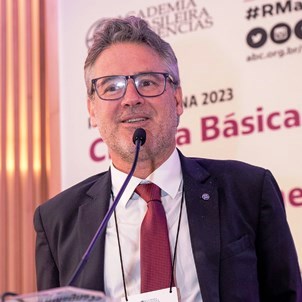
Over the years, other political and institutional tools have emerged with the aim of reconciling human rights with the Sustainable Development Goals, such as 2030 Agenda for Sustainable Developmentthe United Nations and the signatory countries. Within 17 goals planned for the planet and for people, there is a science in everyone, according to Polkoch, because it is transversal, interdisciplinary and part of our daily lives. Therefore, it is necessary to achieve all goals.
Specifically in Goal 9, “Industry, Innovation and Infrastructure”, there are two very clear goals in scope that mention science and that countries need to address.
The first relates to the international improvement of research and industrial technologies. For this, it is necessary to increase investment in S, T & I, as well as increase the number of researchers per million inhabitants. The second focuses on supporting national technology development and industrial diversification, with special emphasis on promoting medium and large-scale technological industries.
Regarding high-income countries, Polcuch outlines the panorama of South America: “We are still far from the reality of these countries. UNESCO data up to 2019 show that many countries in our region spend from 0.1% to 2% of national GDP on basic and applied research He warned that countries that invest systematically in science allocate 5% or more of their national resources to these areas.
With regard to the number of researchers dedicated to the production of scientific and technological knowledge, processes, methods, and systems, the situation is also discouraging. Data from UNESCO and the World Bank through 2018 show that high-income countries, such as the United States and Canada, have levels considered ideal: between 2 and 5,000 researchers per million inhabitants. In the South American region, Argentina takes the lead, with 1 to 2,000 researchers per million population, while many other countries share levels from 100 to 200, 200 to 500, and 500 to 1,000—this is the Brazilian scenario.
When it comes to diversity and women’s occupation of science, the world figure shows how much progress is still needed in terms of the opportunities and encouragement offered to girls, youth, and researchers. According to Polkoch, the most recent records from UNESCO’s Institute of Statistics are from 2018 and show that 33.3% of all researchers worldwide are women. In the 2030 Agenda, there is a specific target for this, number five, which provides for the achievement of gender equality in various spheres of society.
Thus, the question that remains is: How do we ensure sustainable development and scientific and technological development by 2030 if there are a large number that still need improvement and progress? According to Bulkoch, the answer lies precisely in Goal 17, which is about partnerships to achieve the set goals.
“If we want to solve some problems, we need more international cooperation policies,” he noted. An excellent way to achieve this is the agreements made within the framework of the International Year of Basic Science for Sustainable Development, which is precisely the theme to which the Magna 2023 meeting is devoted.
This year’s main points are improving inclusive participation in science, strengthening science education and training, funding basic science, and promoting open science. To serve them, collaboration should be a priority:
There are weaknesses in many scientific indicators in our region. There is no way it can be solved locally by the scientific community of just one country, but rather through an open and broad system of collaboration between the scientific communities. Thus, we need to establish new cooperation policies between us,” says Polkoch.
A priority for UNESCO to create these partnerships is to invest in open science, which, according to Polkoch, constitutes a new paradigm for S, T & I policies. The concept of open science specifies that scientific knowledge should be available, accessible and reusable for all in society, in addition to the need To sharing information among researchers and more civic participation in scientific processes.
Therefore, in 2021, UNESCO published a dossier The first international directory With recommendations for building and embedding open science in everyday life, with advice for the 193 member countries of the United Nations. There are five working groups open to anyone to join.
“Openings are about building links between science and society. We are not only talking about collaboration between scientific communities in different countries, but also listening to and including other civil society actors,” explains Polkoch.
This initiative is important, but in the session’s final discussion, AABC Vice President for SP Region Glaucius Oliva, of the University of the South Pacific’s Institute of Physics of São Carlos, pointed out the fact that, within the official document of the United Nations, there is little regard for the underrepresentation of countries Low income in international scientific publications. In his view, open science and scientific collaboration should counter the dominance of large publishers and maintain the preference for science in high-income countries.

“Wannabe internet buff. Future teen idol. Hardcore zombie guru. Gamer. Avid creator. Entrepreneur. Bacon ninja.”
